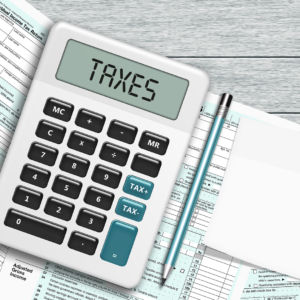Congressional Republicans have proposed a border tax to make up for lost revenue from lowering overall rates in their tax reform plan. As libertarians have lined up in opposition to border tax, some American business leaders say it will create a fairer trade system.
Republicans are currently considering a plan with the aim of overhauling the tax code. Their goal is to create a more competitive system that spurs economic growth by simplifying the tax code and lowering rates. The border adjustment tax is included as a provision in the plan to make up for lost revenue by increasing taxes on imported goods.
The border adjustment tax is a value added tax levied on imported goods. Companies are currently taxed on their worldwide profits at 35 percent. The plan would essentially prioritize domestic production by lowering the tax rate for exports while increasing the rate for imports.
It is viewed by some as a more efficient system that incentives domestic production against an international tax system that works against American exporters. This is the result of most countries having a value added tax on consumption and the U.S. having a high corporate rate.
The American Made Coalition defended the border tax Tuesday by hosting a conference call. Supporters noted during the call that the lower corporate tax rate will eliminate incentives for companies to shift operations overseas.
“Those are the benefits, but what about the border adjustments?” Brian Reardon, a former economic assistant to President George W. Bush, said during the call. “They raise the revenue necessary to offset the lower tax rates and other provisions that are in the plan.”
President Donald Trump and others also see border taxes as a way to keep companies in the country. The border adjustment tax would ultimately make it more costly for companies that import goods. Americans for Prosperity (AFP) warns that companies might instead increase the cost of goods to make up for the lost revenue.
“We’re encouraged by some elements about what’s being discussed so far,” AFP President Tim Phillips told reporters during a call Thursday. “There is an area, though, we’ve become deeply concerned about, and that’s this border adjustment tax.”
Phillips claims the border adjustment tax would be disastrous for consumers. AFP’s Brent Gardner added during the call that the better option to make up for lost revenue is to lower spending. He argues lawmakers should look at their tax plan as a way of decreasing the size of government overall.
“We think the better option there is to look at ways to cut spending,” Gardner said. “We believe very strongly that lowering the overall rates for this, you’re going to see increased economic activity which will generate additional revenue.”
S&P Global President Doug Peterson countered the claim by arguing consumers are already impacted by a high tax rate. Companies already pay a lot of taxes which ultimately impact the costs of goods. The plan could shift that burden by lowering corporate tax rates while increasing taxes on imported goods.
“High taxes are already a cost to consumers,” Peterson said. “If you’re going to be lowering the tax rate overall, there’s going to be massive benefits from that. This is a shift from where the taxes are paid.”
The AFP considers its opposition to the border adjustment tax to be a top priority. It has launched a digital campaign and is helping to mobilize grassroots opposition. Its ultimate goal is to kill the border adjustment tax by convincing enough lawmakers to oppose it.
Trump promised during the campaign that he would work to lower rates while also simplifying the tax code. The Republican overhaul plan mirrors many of those ideas, and while Trump has not yet taken a definitive stand on border adjustment, the policy seems to support Trump’s goal of increased domestic production.
The tax code hasn’t been overhauled or updated in any significant way since the 1980s.

